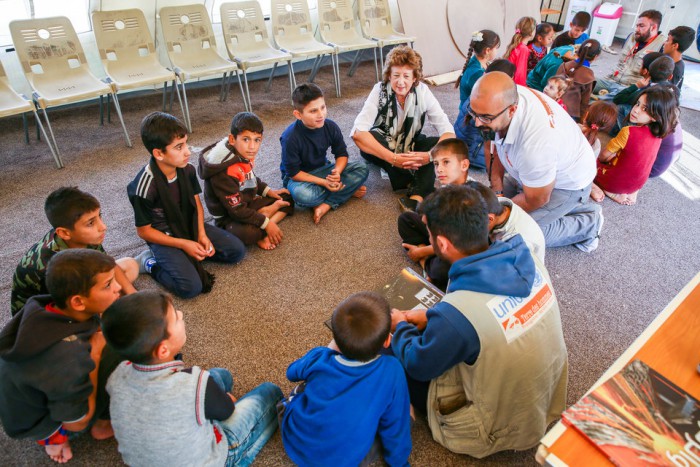18th November 2015 London, UK
Reflections on my visit to Iraq

Looking back on my first visit to Iraq I am struck not only by the challenges the country faces, but also the dedication and energy of both the people of Iraq and those who are working tirelessly to secure the stable and prosperous future they so deserve.
In the four days that I spent between Baghdad and Erbil, I had the opportunity to meet government ministers and officials; human rights activists and civil society representatives; military experts and new recruits; displaced families and those providing them with shelter and essential life-support.
One of the primary aims of my trip was the Iraq launch of the International Protocol on the Documentation and Investigation of Sexual Violence in Conflict, the product of two years of expert consultation and advice from over 200 gender and sexual violence experts drawn from medical, justice, security, human rights and humanitarian fields as well as survivors and organisations from a broad range of countries.
The UK has led and facilitated the development of the Protocol to promote accountability under international law for crimes of sexual violence. Sadly, Iraq is all too familiar with such crimes, not least since ISIL took control of large parts of the north of the country. Thousands of Iraqi women have been forced into sex slavery, with as many as 3,000 women and girls taken captive from the Yezidi tribe and other minorities. The reports of their treatment at the hands of the militants are bone-chilling, as is the infamous “sex slave price list,” which the UN was able to authenticate this summer. ISIL uses sexual violence as a weapon of war, a tactic designed to punish, humiliate and demoralise entire populations. There must be no impunity.
The International Protocol is not a silver bullet, but its launch in Iraq is an important step towards education and accountability. It sets out the basic principles of documenting sexual violence as a crime under international law and offers clear, practical guidance to first responders on the ground. It outlines the basic principles for the collection, documentation and storage of evidence. And crucially, it helps give a voice to the victims, many of whom feel ashamed and unable to restart their lives after surviving the brutal and humiliating attacks. These women have an important role to play in restoring peace and stability to Iraq, and in securing that prosperous future to which Iraqis aspire.
But there is a long way to go. As a result of the ongoing conflict with ISIL Iraq is facing an unprecedented humanitarian crisis. Up to 3.2 million Iraqis have been displaced over the last 12 months. Some are being hosted in families and communities, others in abandoned and unfinished buildings, and others have been given shelter in the numerous IDP camps, many of which are being directly supported by UK aid.
During my trip I visited Camp Harsham in the Kurdish Region of Iraq, and had the opportunity to hear first hand from some of these families displaced by the violence and brutality meted out by Da’esh. In Baghdad I also met families who had fled from Qaraqosh and were now being given shelter – and hope – by Father Pios of the Our Lady of Salvation Church. They are far from home and everything they deem familiar. These men, women and children pray for nothing more than to return home, to go back to their normal lives. With winter fast approaching, there is still a huge amount of work needed to ensure that these families have protection from the cold. Recent flooding across large parts of Iraq served as a stark reminder of the vulnerability of the IDPs to the elements.
The UK is committed to doing its bit to help. We have already committed £79.5M to help the 3.2m vulnerable Iraqis who have been forced to flee their homes. This money will provide those in need with access to water, medicine, food as well as cash assistance to buy essential supplies.
There is still a long way to go, but my visit to Baghdad and Erbil has reinforced in my mind the enormity of Iraq’s potential and the resilience of its people. The international community is working hard to complement the efforts of the Iraqi government, and the UK, for its part, will stand shoulder to shoulder with the Iraqis until that dream of a secure, prosperous future becomes a reality.